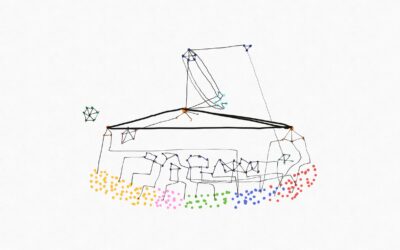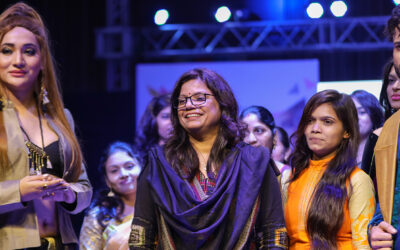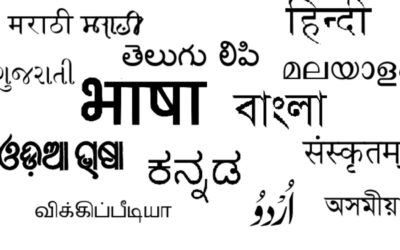Paulo Friere was a renowned Brazilian educator and philosopher. As a leading advocate of critical pedagogy that views teaching as a political act, indistinct from issues of social justice and democracy, predicated on fostering agency, empowering learners and questioning hegemonies, he wrote in his cardinal book Pedagogy Of The Oppressed – “It is when the majorities are denied their right to participate in history as subjects that they become dominated and alienated.”
He offers his writing as a solution to the predicament of human ‘liberation’, through a ‘transformation’ that is fuelled by action and reflection. The oppressed must occupy positions as subjects of the desired change – those who influence it, he argues, rather than as objects – merely those mechanically affected by it in the systems and dynamics of power. Revolutionary praxis, therefore, ought to be a function of unity. In other words, ‘leaders’ cannot treat the oppressed as their possession, but as beloved equals.
Communication is at the core of problem-solving education, and authentic, critical and meaningful thinking cannot take place in an ivory tower isolation. Completing the task of Friere’s ‘transformation’ is hinged on communication that leads to the collective co-creation of the world and its meanings. Such dialogue must be marked by love and faith.
Love ensures enduring commitment to the arduous cause of liberation and faith demands one to humanize the ‘other’ as a thinking being, capable of creating and recreating. Denial of communion in the revolutionary process, refusal to initiate dialogue on equal terms with the oppressed and avoidance of dialogue with the people under the pretext of organizing them, of strengthening revolutionary power or of ensuring a united front, are all really a fear of freedom and equality … of democracy itself.

Seamlessly flowing from Friere’s critical pedagogy are the contributions to theatre and social justice discourse made by his student and pedagogy colleague, Augusto Boal. Boal was a giant in so many ways: theatre director, scholar and teacher, political representative and statesman, Nobel Peace Prize nominee, and the visionary who conceived and patiently developed one of the most subversive cultural and artistic practices of the last millennium. Prior to his experimentation, and following tradition, the audience was invited to discuss the play at the end of a performance.
While being given an opportunity to express themselves, in so doing, according to Boal, they remained mere viewers and ‘reactors’ to the action before them, not co-creators. In the 1960’s, Boal developed a process whereby audience members could interrupt a performance and suggest different actions for the character seemingly experiencing oppression. But in a now icon development, a woman in the audience once was so outraged when the actor was unable to understand her suggestion that she came onto the stage herself and showed what she meant. For Boal, this was the birth of the ‘spect-actor’ (not spectator) and his theatre was transformed.
TO is a form of popular community-based education that uses theatre as a tool for social change. Forum theatre, the most widely known TO technique, explores unresolved scenes of oppression, which are replayed with the audience invited to stop the action, replace the character they feel is oppressed, struggling or lacking power, and improvise alternative solutions. The audience is thus transformed from mere spectators, to ‘spect-actors’, allowing them to practically visualise a better future with liberation consciousness. When a tactic works, other spect-actors then replace the oppressor and try to re-establish tension. This creates a dynamic situation. The method shows the available arsenals of tactics available to both oppressors and oppressed. Theatrical practice operates as a rehearsal for challenging oppression in everyday life.
In principle, the effect of ‘catharsis’ is completely removed. People don’t experience a vicarious revolution as a substitute for a real one. The rehearsal provides an inspiration for real acts of resistance.
Whereas conventional theatre uses a code of non-interference by the audience, Boalian theatre proposes intervention, encouraging the audience to ‘invade’ the stage and introduce alterations! In contrast to bourgeois theatre as ‘finished theatre’, TO presents images of a state that can be transformed. It is never a finished spectacle. It is a work in progress. Hence, it models the world theorized in Boal’s view – in which humanity and life are always evolving and never complete.
Boal favours the ‘invasion’ of the stage also because it combats alienation. Alienation is here seen as a reduction to a status of less than fully human – an object, a state Friere too attempted to combat. The traditional spectator is alienated such that they delegate the power to act to other people. TO ‘humanizes’ the spectator by restoring their capacity for action in all its fullness; it restores the spectator to equality with the actor, rather than treating them as a passive receiver of an imposed, finished worldview. The invasion of the aesthetic space symbolizes structural trespassing, or seizure of power, needed to challenge oppression in other spheres. In other words, the split between powerful actor/director and powerless, passive spectator instantiates the broader split between powerful and powerless.
Just as a spectator can become an actor, so workers can take over factories, students can teach, women can step out of stifling households, oppressed people can fight back against abusers. We cannot be free without such an act of ‘trespass’, outside established roles and norms. This theatre assumes, or models, the possibility for change.

A philosophically crucial aspect of TO lies beyond the performance itself. Sessions often start with games and bodywork. Such activities are seen as creating a kind of communion, and existence as a group. Their function is to destroy what Boal calls ‘muscular alienation’, and to perform a ‘de-mechanisation of the body’. In the course of work and everyday life, people adopt certain habitual bodily postures and comfort in the repetition of certain acts. People’s bodies get mechanized, often producing mindless, muscle-memory responses to stimuli. They can’t act creatively, because they always revert to the constrained gestures of the constricted body.
Boal exemplifies this idea in relation to work – the repetition of particular postures during physical labour as workers in factories, mines and farms; someone who works at a computer spending significant durations sitting, with eyes facing the screen and hands on the keyboard; someone whose job involves sorting things or filling forms; a retail employee, perhaps allowed more mobility, but expected to keep up appearances of pleasantry; a woman running a household, with an unchanged schedule and list of chores to complete everyday. People might also get bodily structures from family life, consumption patterns or recurring emotional states.
There is also a crucial sensory equivalent to this kind of muscular rigidity. People filter reality in line with particular culturally relevant assumptions. They make habitual settings seem orderly. And orderly settings as right. For instance, people raised in cities can process urban stimuli, but not usually those of a forest. On the other hand, someone who has always lived in a forest will find it more orderly than a city. Such filters can act in similarly to bodily rigidities, predisposing people to see, hear and perceive in particular biased ways- an impediment to democratic dialogue, co-creation and creative thinking that forum theatre seeks to address.
Paulo Friere and Augusto Boal’s pedagogical partnership left behind some enduring lessons for future political thinkers, social activists and development professionals- in their unwavering faith in all people, regardless of their unique power positioning (or lack thereof), as intellectual beings capable of creation & recreation, action & reflection; in their placing of the oppressed at the leading end on the road to liberation; in them continually rejecting singular finished world views, as opposed to ever-evolving collective ones; and in their undying commitment to embracing the possibility of positive change.




0 Comments